Stressed Out? 10 Adaptogenic Herbs That Help With Chronic Stress
In a hurry? Click here to read the Article Summary...
According to the U.S. Centers for Disease Control and Prevention (CDC), the leading causes of death in the United States today include many of the usual suspects. Topping the list are things such as heart disease, cancer, chronic lower respiratory illness, accidents, stroke, Alzheimer’s disease, diabetes, influenza and pneumonia, kidney disease, and suicide [1].
But consider the fact that, in many cases, there’s often just one cause behind these conditions that people, for the most part, seem to overlook: chronic stress.
Prolonged stress in whatever way it manifests itself can be deeply harmful to the body – not only physically, but also emotionally and even spiritually.
Stress Linked to the Most Common Causes of Death
The APA warns that chronic stress is directly linked to at least six (and likely more) of the most common causes of death in modern America.
Most notably, the effects of stress contribute to:
- heart disease
- lung disease
- cancer
- accidents
- cirrhosis of the liver
- self-murder
Believe it or not, one scientific study found that upwards of 90 percent of all chronic illnesses are caused by stress [2]!
How Is Your Body Coping With Stress and Anxiety?
 While the human body is fully equipped to combat the negative effects of acute (short-term) stress, persistent (ongoing) stress and anxiety are an entirely different animal.
While the human body is fully equipped to combat the negative effects of acute (short-term) stress, persistent (ongoing) stress and anxiety are an entirely different animal.
This type of prolonged stress takes a much bigger toll on the body than many people think. It wreaks some of its worst havoc on the glandular and endocrine systems of the thyroid and adrenals that are responsible for producing the various hormones that our bodies need to live and thrive.
Chronic Stress Depletes the Body
What was designed to be a temporary “fight or flight” response to occasional stressors by these important systems is forced into becoming a permanent coping mechanism for constant, unrelenting stress.
If left unchecked, this type of chronic stress will eventually deplete the body’s hormone stores to dangerous lows.
This sets the stage for a cascade of even worse health problems that are likely to form in their absence. We’re talking potentially life-threatening metabolic changes like blood sugar imbalances (type-2 diabetes), brain damage, decreased bone density and muscle wasting, increased blood pressure, impaired immunity and healing, excess fat growth (especially around the abdomen), and elevated risk of heart attack.
What Are the Signs of Chronic Stress?
There are many ways that stress shows up in the body – both physically and emotionally. Some of the most common signs of stress, as shared by WebMD, include [3]:
Physical Chronic Stress Symptoms
- Low energy
- Headaches
- Upset stomach (including diarrhea, constipation, and nausea)
- Aches, pains, and tense muscles
- Chest pain and rapid heartbeat
- Insomnia
- Frequent colds and infections
- Loss of sexual desire and/or ability
- Nervousness and shaking, ringing in the ear
- Cold or sweaty hands and feet
- Excess sweating
- Dry mouth and difficulty swallowing
- Clenched jaw and grinding teeth
Emotional/Mental Signs of Stress
- Becoming easily agitated, frustrated, and moody
- Feeling overwhelmed (either like you are losing control or need to take control)
- Having difficulty relaxing and quieting your mind
- Feeling bad about yourself (low self-esteem), lonely, worthless, and depressed
- Avoiding others
Adaptogens: Nature’s Solution to Chronic Stress
 It is generally recognized that things like prayer and meditation, exercise, leisure, and rest are great ways to relieve stress – and these are all good things, indeed!
It is generally recognized that things like prayer and meditation, exercise, leisure, and rest are great ways to relieve stress – and these are all good things, indeed!
But what about diet and herbal support? We don’t hear much about that, and yet there’s an entire class of herbs known as adaptogens that are uniquely suited to support the body’s efforts to combat prolonged stress.
As their name implies, adaptogens help the body to adapt to difficult situations in life that contribute to chronic stress, in effect stopping it before it begins to take its toll.
Author, educator, and “Medicine Hunter,” Chris Kilham, describes adaptogens like this [4]:
“An adaptogen is a botanical that greatly improves your body’s ability to adapt to stress, whether it’s a hectic schedule, heat or cold, noise, high altitudes or any number of other stressors. This elite class of herbs imparts strength, energy, stamina, endurance, and improves mental clarity.”
One study published in the journal Pharmaceuticals describes adaptogens as substances that enhance the “state of non-specific resistance” to stress. By generally warding off stress, adaptogens effectively help to protect the central nervous system against stress-induced neural damage, while also enhancing cognition and fighting fatigue, depression, and generalized anxiety.
Put more simply, adaptogens function as equalizing agents to help push the body towards homeostatic balance – which is its optimal state of being [5].
What makes adaptogens even more special is the fact that they don’t change any specific function of the body. Rather, they aid the body’s adaptive structures to better respond to outside influences and stressors that, if persistent enough, can throw it majorly off-kilter.
In essence, adaptogens normalize the physiological state of the body to help release it from the constant state of “fight or flight” that demarcates what it means to be chronically stressed.
Adaptogens Modulate the Release of Cortisol, the “Aging” Hormone
One of the ways that adaptogens accomplish this mighty feat is by targeting the hormone most associated with the damaging effects of chronic stress: cortisol.
Cortisol is often referred to as the “aging” hormone, though not necessarily because it causes our bodies to age. Cortisol is actually quite helpful when it isn’t being produced excessively in response to stress.
Like all the other hormones that our bodies produce, cortisol is essential for life. But it’s only supposed to be produced in small amounts, and for a limited time, as a buffering agent to keep the many systems of the body running smoothly.
When stress gets out of control, so does cortisol. It turns into a deadly killer that zaps energy instead of creating it, and that impairs immunity rather than supporting it.
How Adaptogens Lower Cortisol
This is where adaptogens come into play. Adaptogens intercede in place of cortisol to give the adrenal glands a break, effectively guarding them against becoming fatigued.
Cortisol levels decrease when adaptogens are present because adaptogens function similarly to cortisol. And because they’re introduced exogenously (from outside the body), adaptogens don’t cause any strain whatsoever on the body as excess cortisol does.
As a result, the adrenal glands are freed up to continue producing other vital hormones such as:
- Progesterone
- Estrogen
- Testosterone
- Human growth hormone (HGH)
The body needs all of these hormones to keep its many systems functioning well and in sync with one another. This then allows cortisol, which functions as a type of master hormone, to spend more of its time guarding the body as it’s supposed to – rather than harming it in response to chronic stress.
Dr. James Wilson writes in his book Adrenal Fatigue that [6]:
“Cortisol is a key regulator in the hormonal web of the body. High and low cortisol levels impact negatively on body systems and related hormones, particularly thyroid and testosterone. About 80 percent of adrenal fatigue patients will also have a sluggish thyroid that needs supplementation.”
10 of the Best Adaptogenic Herbs for Managing Stress
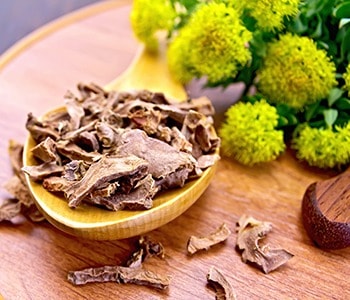 It’s no wonder that the traditional systems of medicine in India and China have been using adaptogenic herbs for thousands of years. These herbs help ward off stress and promote energy, calm, and balance throughout the body.
It’s no wonder that the traditional systems of medicine in India and China have been using adaptogenic herbs for thousands of years. These herbs help ward off stress and promote energy, calm, and balance throughout the body.
The tonifying properties of adaptogens (“tonifying” means increasing the available energy of a body part or system) truly are special in that these precious substances help to uplift the body while simultaneously leveling it out. Much like how a thermostat keeps the temperature inside your home not too warm, and not too cool, but just right.
So, what are some of the more popular adaptogens, and how do they work?
Here are 10 adaptogens that time-honored tradition and science alike hold in high esteem for their powerful stress-killing potential:
- Ashwagandha. Arguably the most highly prized of the adaptogenic herbs, ashwagandha (Withania somnifera), also known as Indian ginseng, has a multi-millennia track record of powerful tonic effects in the realm of supporting immunity and emotional balance. Eastern medicine has long recognized the incredible ability of ashwagandha to support balanced cortisol levels while helping to mitigate stress.
- Astragalus. A popular herb in Traditional Chinese Medicine (TCM), astragalus (Astragalus propinquus) is similarly suited to support the immune system while buffering the effects of stress. Astragalus is also said to help the body in repairing stress-related damage from the past, while at the same time redirecting cortisol away from vulnerable stress receptors.
- Cordyceps. A nutrient-dense mushroom from the endoparasitoid family, the cordyceps (Ophiocordyceps sinensis) fungi isn’t technically an adaptogen in a traditional sense. But it does possess powerful adaptogenic properties as they pertain to immunomodulation and stress relief, which makes it a worthwhile option.
- Eleuthero. Also known as Siberian ginseng (Eleutherococcus senticosus), eleuthero has many of the same properties as ashwagandha and astragalus, with the added bonus of helping to support increased energy levels and optimal sexual function.
- Holy basil. Sometimes referred to as Tulsi, holy basil (Ocimum tenuiflorum) is particularly suited to help the body better respond to both physical and emotional stress. Its tonifying effects specifically on the mind are what set it apart from some of the other adaptogens, and many regard it as being powerfully anti-aging as well.
- Licorice root. Known scientifically as Glycyrrhiza glabra, licorice root is another energizing adaptogen with immune-boosting properties and a special ability to help protect the thymus gland from being damaged by cortisol. It’s important to use this one under the guidance of a qualified healthcare practitioner, though, because it can affect blood pressure levels.
- Maca. Also known as Peruvian ginseng (though it doesn’t actually hail from the ginseng family), maca (Lepidium meyenii) is regarded as one of the “lost crops of the Andes.” It has long been prized by the native people of Peru as an herbal tonic of the highest order. Maca’s many reported benefits include increased strength, stamina, energy, libido, and sexual function.
- Panax Ginseng. Sometimes referred to as Asian, Chinese, or Korean ginseng, Panax ginseng is the most well-studied of the ginseng varieties and is considered to be the “truest” form of ginseng. Panax ginseng is said to provide non-specific support against mental, physical, and environmental stressors.
- Rhodiola rosea. Both calming and invigorating, Rhodiola rosea is another powerful adaptogenic herb that combats stress as well as fatigue – hence its immense popularity throughout Siberia where it’s natively grown.
- Schisandra. This incredible berry has been a staple of traditional medicine for centuries, as it’s known to help protect against adrenal fatigue while supporting healthy inflammation levels. A robust fighter against free radicals, schisandra actually seeks out stress hormones in the blood and helps neutralize them. At the same time, it supports enhanced physical performance, endurance, and energy levels.
Organixx Turmeric 3D Contains KSM-66® Ashwagandha
The award-winning Organixx Turmeric 3D formula has always contained ashwagandha extract. As part of our commitment to the cleanest and most effective supplement ingredients, we upgraded to Organic KSM-66 Ashwagandha® in 2019 – the most clinically studied ashwagandha on the market [7].
KSM-66 is a full-spectrum ashwagandha extract produced using a unique proprietary extraction process, based on “Green Chemistry” principles, without using alcohol or any other chemical solvent.
USDA Certified Organic Turmeric 3D from Organixx is a synergistic blend of organic and patented ingredients, including naturally fermented FermaPro® Organic Turmeric Root, along with Organic KSM-66® Ashwagandha, Organic Ginger Root, and Organic Black Pepper Fruit Extract (10%) Piperine. Each ingredient is clinically studied to support inflammation, stress, immune health, and metabolic balance, and optimized with a bioavailable delivery system that boosts absorption by 2,000%.*
*These statements have not been evaluated by the Food and Drug Administration. This product is not intended to diagnose, treat, cure or prevent any disease.
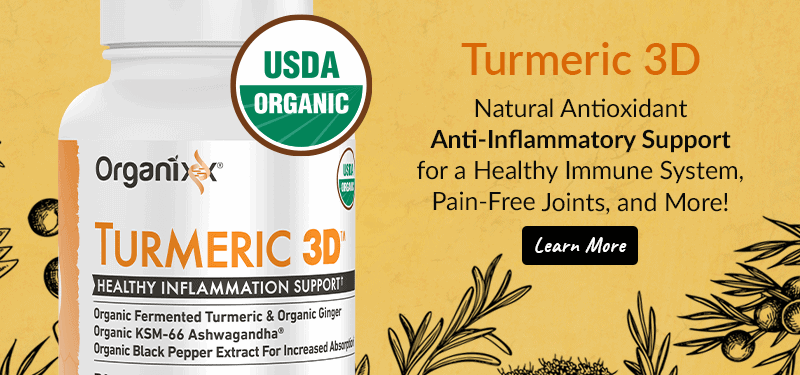
 Sources:
Sources:
Article Summary
The American Psychological Association (APA) warns that chronic stress is directly linked to at least six (and likely more) of the most common causes of death in modern America.
Longstanding stress wreaks some of its worst havoc on the glandular and endocrine systems of the thyroid and adrenals.
There are many ways that stress shows up in the body – both physically and emotionally.
There is an entire class of herbs known as adaptogens that are uniquely suited to support the body’s efforts to combat prolonged stress.
Adaptogens modulate the release of cortisol, the “aging” hormone, and help to uplift the body while simultaneously leveling it out.
10 adaptogens with powerful stress-killing potential:
- Ashwagandha
- Astragalus
- Cordyceps
- Eleuthero
- Holy basil
- Licorice root
- Maca
- Panax Ginseng
- Rhodiola rosea
- Schisandra


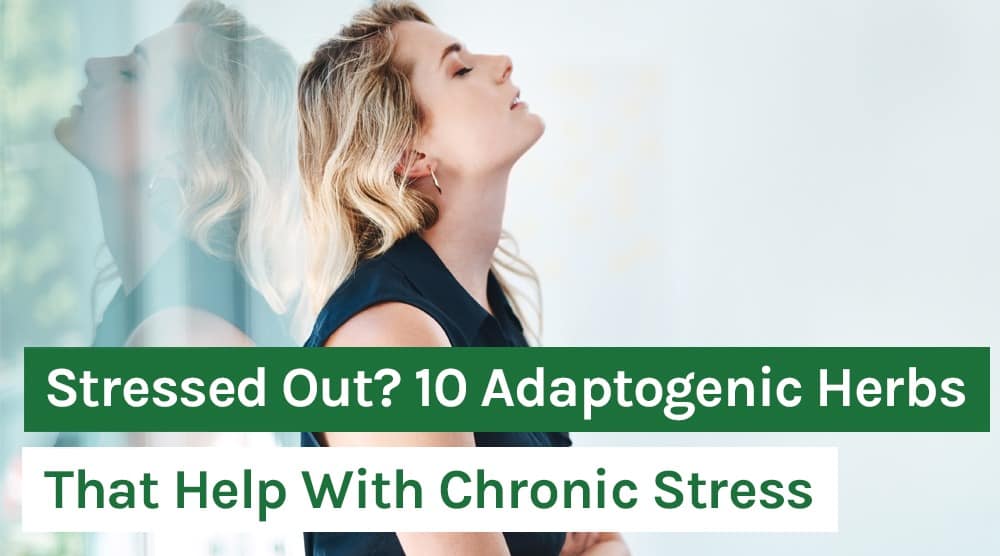
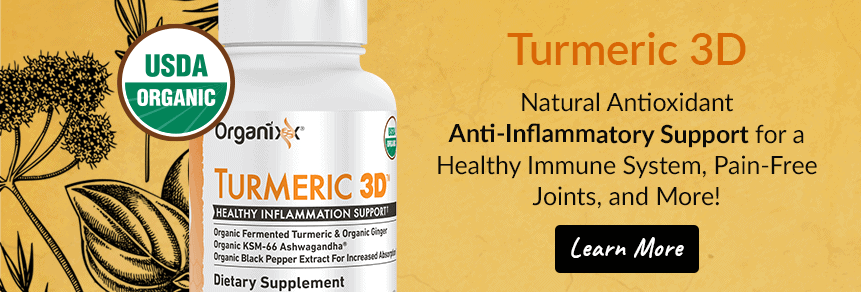
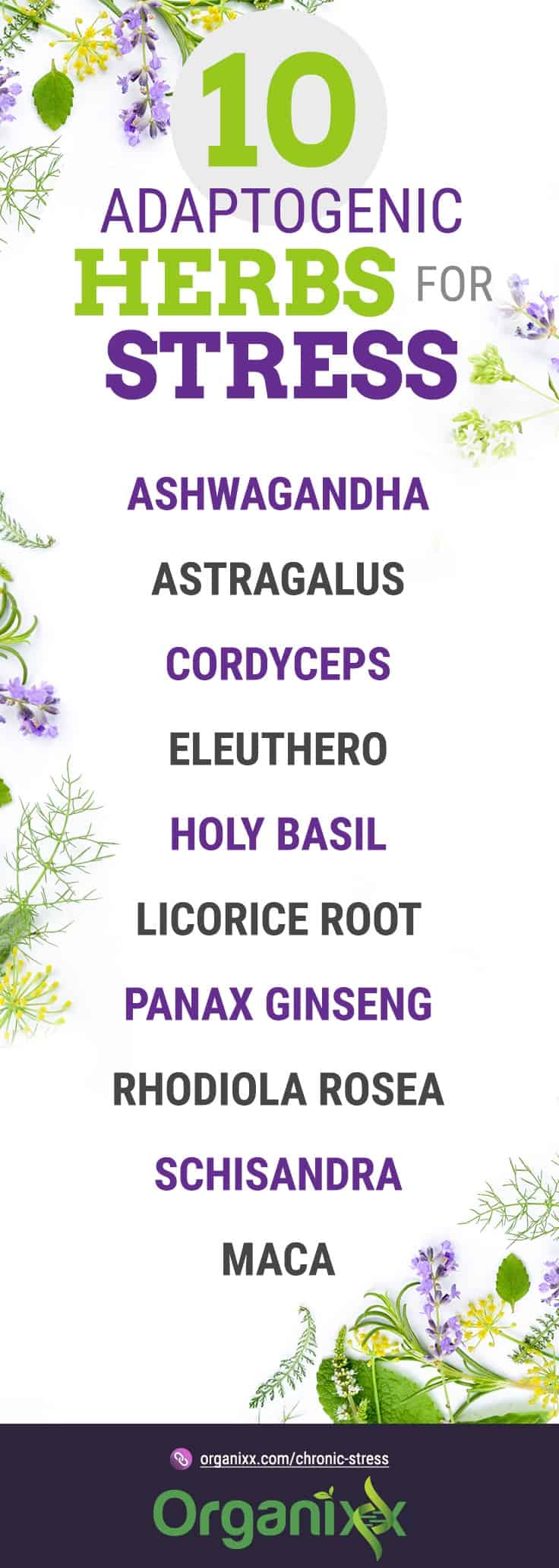
Hello i rather have my favorite color Turmeric 3D and ginger bioperine curcunoid and the Aswagthda plus curcumnoid yes i am going to stick with your's that my problem is my liver dry skins hands arms legs knee feet never happened before the just happens that why i noticed that something is not right cheers thank kindly for your time Ricky tangamka
Yo padezco de strees crónico desde hace muchos años y los síntomas son reales con los mismos.
As previously asked - do you sell a product that encompasses all of the 10 adaptogens that can reduce stress?
Hi Gregory!
No, unfortunately we do not offer a product that contains all of the 10 suggested adaptogens.
Cheers to your good health! :)
I purchased several bottles of Turmeric BioPerine (1300MG) product from the Sabinsa Corp. some time ago. I now question if it is safe. Do you know anything about it??
I am very concerned - and would welcome any input you have.
Ruth
Hi Ruth! Unfortunately, we are unfamiliar with the product you mentioned. In this case, we are unable to provide any information without having done proper research. We hope you can understand our take on this. Wishing you a happy and healthy day! :)
The information in this email is amazing. Can i subscribe to hear more of your wonderful help.